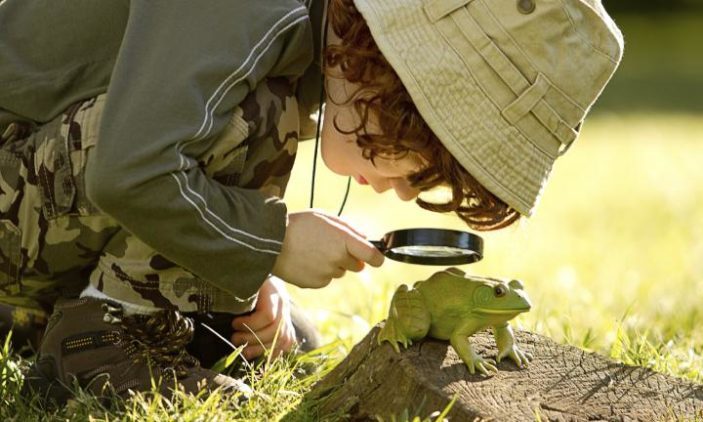Curiosity is a natural attribute of the human being that should be kept as an asset up to adulthood. The brain is designed to learn so it is inevitable that children try to comprehend their environment and can’t stop exploring and experiencing all the time. At an early age child´s curiosity is focused on mom and dad, parents are the door to the world, so they are responsible for the best conditions for learning. As children investigate, smell, touch, see and taste they fuel the emotional, social, physical and ethical development. But capitalizing the curiosity in children is not an easy task, it requires dedication and the time, adults must provide the enriching experiences but also the necessary independence that helps kids make the adequate decisions. It is the perfect balance: create an atmosphere that intrigues but doesn’t over stimulate and offer experiences according to the stage of development but that are aligned to the children interests. Some of the following tips may be helpful in this extra challenge for parents:
- Teach your children to explore and expand curiosity with enthusiasm even in activities that may seem risky or dangerous to you.
- Always have in mind the safety but not as restriction to your kid´s creativity. Encourage your children to put all their senses in action giving them new objects, textures, shapes, sounds and tastes.
- Let your children interact and observe the real world out of home. Take them to walk, to meet people and visit interesting places as gardens, zoos, nature centers, planetariums, aquariums and museums.
- Encourage curiosity in your children by letting them ask freely what they don’t know or understand, something may be obvious for you but unknown for them
- Provide materials that stimulate children’s interactions with others and may expand language and communication skills as toys, books and music
- If you child likes to figure how things work choose toys as puzzles or blocks with which he can build and create
- Curiosity is a natural path to learning, so try to respectfully listen and respond to children’s questions
- Experimenting is a logical way to learn, let your children try new approaches to different situations
- Don’t discourage your young learner just telling him “that is not possible”, always offer a reason not to do things and different alternatives.
- Surprise your children, the unexpected enhances their curiosity: organize a little party, invite them to sing aloud, bake a cake, something different that they like.
- Invent a story that your child should finish, invite him to invent characters or a new title
- Ask questions to your kids, make them think about their opinions (and be prepared to hear all sorts of answers).
- And finally and the most important, let your child be a child and explore the world his own way.






